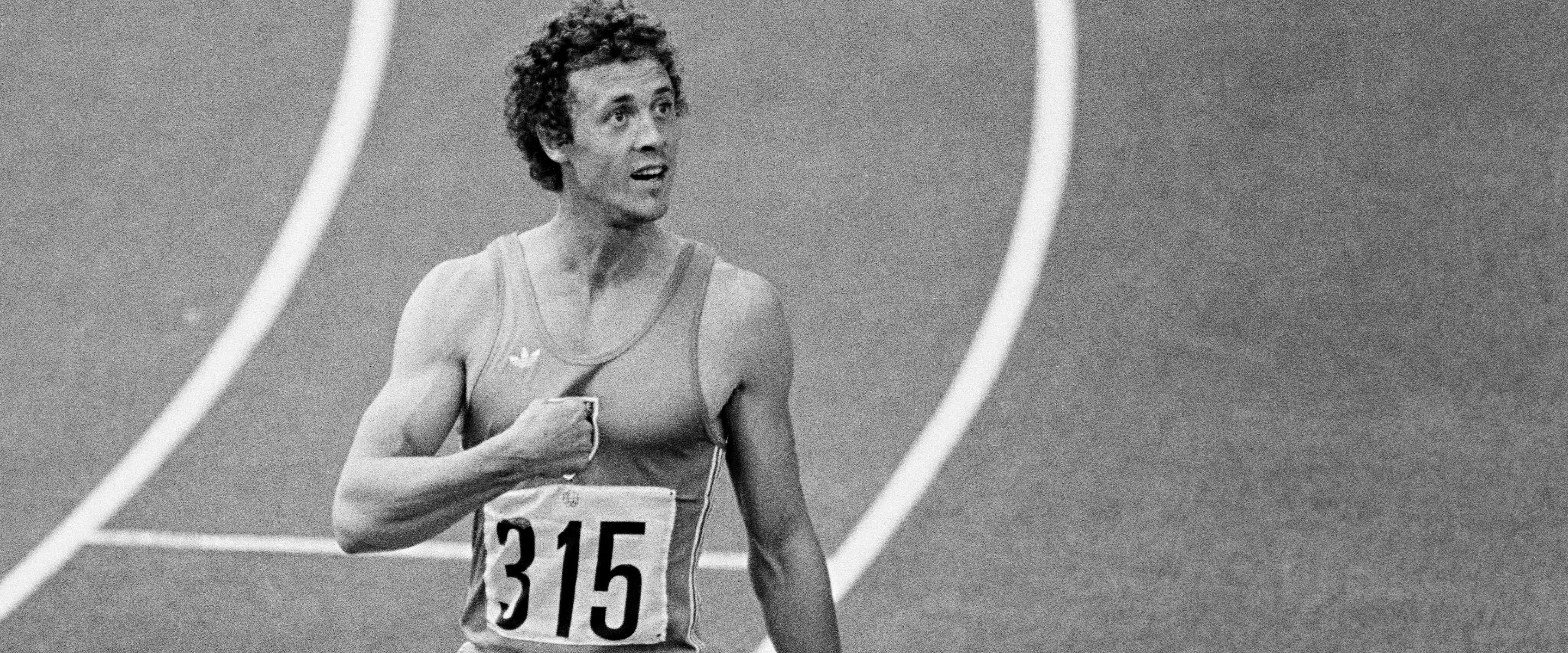As part of the "Légendes Mondiales du Sport" exhibition at Samaritaine, the track and field champion is exhibiting the shorts, jersey and bib he wore when he won the 110-meter hurdles in Montreal in 1976. His career, his memories... Guy Drut tells us about some of his greatest moments.
How did you start out in athletics, and at what point did you realize you'd make a career out of it?
My father and grandfather were footballers, so naturally I followed in their footsteps. I quickly turned to athletics, because there was a very good club in my town. I loved it all: jumping, running, throwing... I started off pole-vaulting. Then in Munich in 1972 I came second in the 110-meter hurdles. From that point on, I devoted myself to this discipline. This was part of my pole vault training and we realized, rather by chance, that I was going really fast. I had even equaled the French record while training! I was European champion in Rome in 1974, and then Olympic champion in Montreal in 1976.
Do you remember the event itself in Montreal?
Of course I do! I remember the heats, which went well, and the semi-finals, which went really badly. I just wasn't up to it. I could feel Alejandro Casañas Ramírez and Willie Davenport passing me, and I just couldn't catch them. I had an extraordinary dip in morale. And then I went back into the stands, where I saw those close to me, the ones who had faith in me. I told myself that I couldn't lose heart. That's when things clicked, and I became the winner I'd always wanted to be. In the final, I wasn't in the lead at the first hurdle, but from the third onwards I was. I kept a 30-centimeter lead that won the gold.
How did you feel at that moment?
I had a brief moment of doubt that you can see on camera where I'm pointing at my chest. But when I looked up at the electronic board in the stadium and saw my photo, I was so relieved. After all, I'm the one who won in the end! It wasn't just handed to me. First, you feel a very selfish pride, and then you think about the people around you who will be so thrilled.
What has your relationship with competition clothing been like as an athlete? Particularly, the jersey, shorts and bib?
Competition clothing has always been very important to me! You always wear the same clothes. After three days, they don't smell so good, but I couldn't have run with new shorts, a new jersey or new shoes. Tennis players carry their rackets, skiers their skis, racing drivers their overalls... Others still have their own charms, but that wasn't the case for me. It was both a ritual and a charm, with a little superstition thrown in... but not too much, otherwise you jinx it!
Looking back, how did your sports career shape the man you've become?
I've always known how to listen to advice and use it. Whether it was my coach who was my sports mentor, Jacques Chirac who was my political mentor, Raymond Lorre - the President of the Stade Français - who was my spiritual mentor... I believe there are three major stages in life: first you learn, then you undertake, and today I try to pay it forward.
You went on to a career in politics, as Minister for Sport and member of the IOC. Was this a way of continuing your commitment to the value of sport?
Politics is all about being in contact with others, which is what I really love. In 1983, I began by being elected as a Paris councilor, and then mayor of Coulommiers... I use the same strengths required as an athlete: courage, tenacity, enthusiasm and the desire to be in contact with others.
What do you think of the "Les Légendes Mondiales du Sport" exhibition at Samaritaine?
I think it's a great idea. I'm very proud to have my Montreal jersey on display! To be able to see these exhibits here is fantastic. Samaritaine has an extraordinary heritage that I find really moving but I'm not a regular shopper—it's more Madame Drut who’s the shopper!
What's your favorite everyday style these days?
I try not to wear a tracksuit all the time! I think that the key to elegance is knowing how to dress for the event. When you go to see a competition in a stadium, you can be in sneakers with a jersey under your jacket, but that doesn't work everywhere. I have six children, five of them daughters, and they're very conscious of style, so I try hard not to embarrass them!
This summer's campaign at Samaritaine celebrates everyday athletes. What's the sportiest thing you do in your daily life?
Walking! I'm over 70. I can't run or play tennis anymore, so I play golf. It's always in beautiful surroundings, it lasts four hours... You walk and you clear your head!
© L'Equipe/Presse Sports
Shopping Location and settings
Confirm your language preference and trip type for shopping experience:
Shopping Location
 Paris
Paris
Language
- English
- Francais
无数据

Paris | English

Shopping Location and settings
Confirm your language preference and trip type for shopping experience:
Shopping Location
 Paris
Paris
Language
- English
- Francais
无数据

Paris | English


